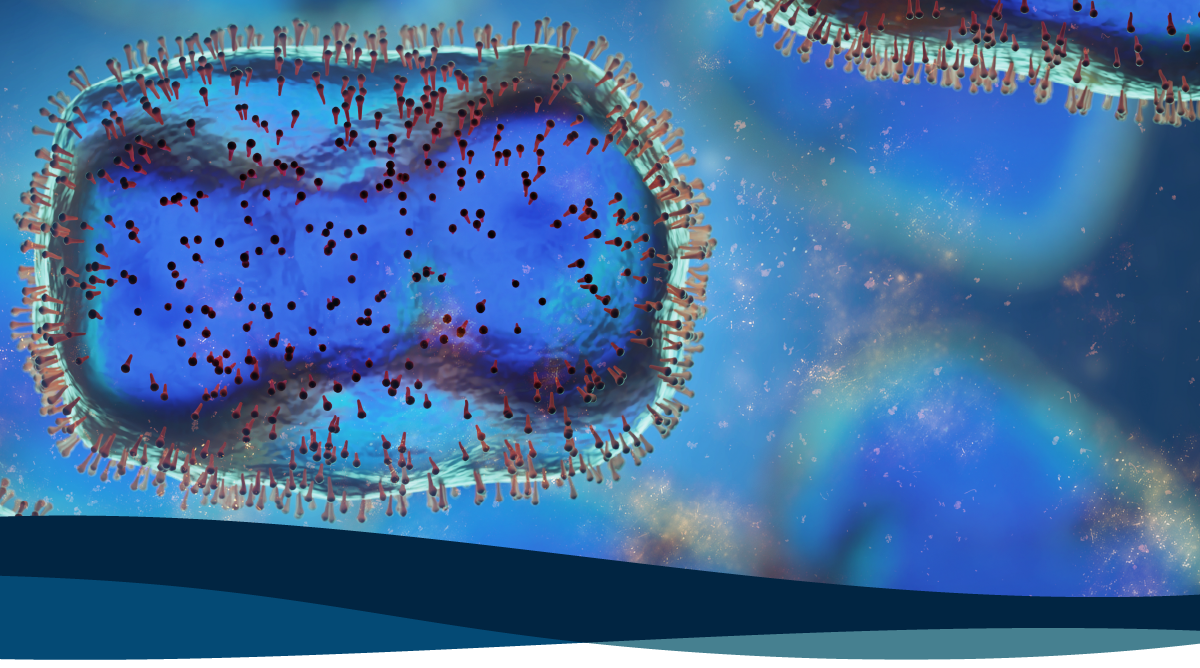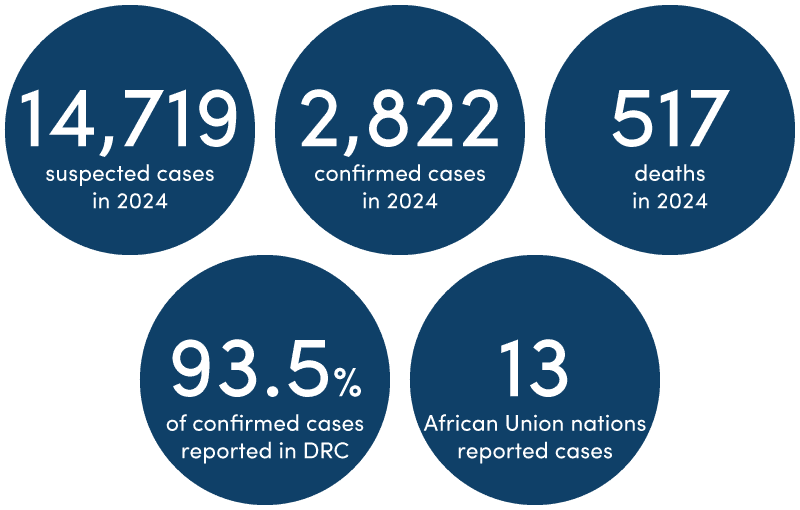
Mpox: 98.9% detection accuracy achieved as WHO declares international public health emergency
The World Health Organization (WHO) has declared a public health emergency of international concern (PHEIC) in response to a worrying increase in transmission of mpox.1
Monkeypox virus is a lesion-causing virus that readily transmits via skin-to-skin contact. Those with underlying health conditions, especially immunocompromised people, are more likely to experience a higher severity of infection and greater risk of fatality.2
Dr Tedros Adhanom Ghebreyesus, WHO Director-General, published the declaration in a news release last week in response to intensifying mpox transmission in 13 African Union member states, chiefly the Democratic Republic of Congo.2
Across Africa, 2,822 confirmed cases of mpox have been reported since the beginning of 2024.2
Of grave concern is an uptick in cases that resulted in death. 208 deaths were attributed to mpox prior to August 2024. In 2024 alone, this figure has climbed to 517 deaths, representing approximately 18.3% of confirmed cases reported in the same period.2
Dr Ghebreyesus also cited a novel subclade of mpox to justify an internationally coordinated effort to quell the outbreak.1 The new subclade, designated Ib, is expected to exhibit a high likelihood of infection for close contacts of confirmed cases according to the European Centre for Disease Prevention and Control (ECDC).2
Observing the large discrepancy between suspected and confirmed cases, rapid differential diagnosis of mpox against other lesion-causing factors poses a challenge for the global coordinated response. Pond, et al. (2023) proposed the clinical value of multiplexing diagnostics for mpox with similar vesicular rash-causing pathogens.3
The research group evaluated the clinical performance of the AusDiagnostics multiplex-tandem polymerase chain reaction (MT-PCR) mpox assay* with residual sample extracts against a laboratory developed test. The researchers reported an accuracy of 98.9% (CI 93.8 – 99.9) and sensitivity of 94.2% (CI 85.2 – 98.1).
The study also revealed several cases of similar vesicular rash-causing pathogens that were missed by the laboratory developed test, with at least one of 5 other pathogens detected in 26.8% of the tested samples. The data exemplifies the value of syndromic testing in routine mpox screening.
As health authorities in Europe, UK, USA, and Australia prepare for the arrival of mpox, consider integrating multiplexed syndromic screening into your service offering with the AusDiagnostics Lesions and Ulcers 12-well* panel.
|
Lesions and Ulcers 12-well* |
|
|
Viruses |
Bacteria |
| View Panel Enquire Now |
* The Lesions and Ulcers 12-well (REF 87191) panel is intended for research use only. Not for use in diagnostic procedures.
References
- World Health Organization. “WHO Director-General Declares Mpox Outbreak a Public Health Emergency of International Concern.” (2024) https://www.who.int/news/item/14-08-2024-who-director-general-declares-mpox-outbreak-a-public-health-emergency-of-international-concern.
- European Centre for Disease Prevention and Control. “Risk assessment for the EU/EEA of the mpox epidemic caused by monkeypox virus clade I in affected African countries.” (2024) https://www.ecdc.europa.eu/sites/default/files/documents/mpox-risk-assessment-monkeypox-virus-africa-august-2024.pdf
- Pond, M. J., Jowan Al-Mufti, Pinglawathee Madona, M. A. Crone, Kenneth G. Laing, Richard S. Hale, David Muir, and Paul Randell. “Mpox infection investigation using multiplexed syndromic diagnostics: Evaluation of an AusDiagnostics multiplexed tandem PCR (MT-PCR) syndromic panel.” Journal of Clinical Virology Plus 3, no. 2 (2023): 100142.
| Be the first to receive AusDiagnostics updates: |
Join the conversation:
    ↑ Back to top |


